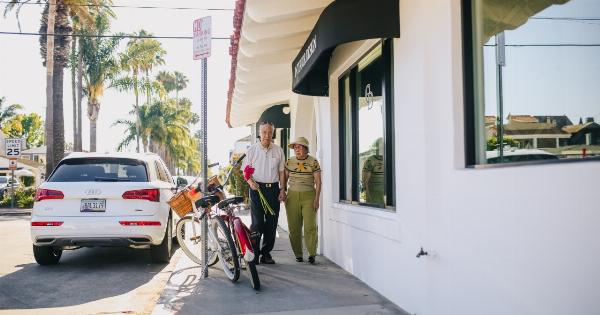Muscle pain is a common phenomenon among people of all ages. It can occur due to multiple reasons, including overexertion, poor posture, and medical conditions like arthritis or fibromyalgia.
The pain can be uncomfortable and debilitating, affecting your daily routine and overall quality of life. The good news is that you do not always need medications to alleviate muscle pain. Here are some non-medication remedies that can help combat muscle pain efficiently.
1. Hot or Cold Compress
A hot or cold compress can help relieve muscle pain, depending on the cause. If the pain is due to an injury or inflammation, cold compress can be helpful.
Cold reduces inflammation by constricting blood vessels, numbing painful areas and slowing down nerve impulses that cause pain. On the other hand, hot compress can alleviate stiffness, ease muscle tension, and enhance blood circulation. It improves the supply of oxygen and nutrients to the painful area, promoting healing and relaxation.
2. Stretching Exercises
Stretching is a simple yet effective remedy for muscle pain. It involves extending your muscles in different directions, gentle twists or bends to alleviate muscle tension, improve range of motion, and reduce pain.
Stretching increases flexibility, improves posture, balance and coordination, and promotes overall physical and mental wellbeing. Ensure to stay hydrated and avoid overstretching, which can cause further muscle damage.
3. Massage Therapy
Massage therapy involves the manipulation of muscle fibres, tendons and ligaments, by rubbing, pressing or tapping the affected area.
It can help ease muscle pain by increasing blood circulation, reducing inflammation, and releasing endorphins, which are natural pain-relieving hormones. Massage therapy can also improve flexibility, alleviate anxiety and stress, and boost your immune system. Seek a professional massage therapist that understands your medical condition to avoid further injuries.
4. Epsom Salt Bath
Epsom salt is a naturally occurring mineral that contains magnesium and sulfate. Its molecules can ease muscle pain by reducing inflammation, relieve stress and promote relaxation.
To use Epsom salt, dissolve it in warm bathwater, soak the affected area for about 20 minutes, then rinse with warm water. The warm water and Epsom salt can relax your muscles, reducing pain and stiffness, improving blood flow and ultimately promoting quick healing.
5. Practice Good Posture
Poor posture can cause muscle pain in the neck, shoulder, back, and legs. It can be attributed to how we sit, stand or walk. Ensure that you develop good posture habits by standing straight, aligning your ears, shoulders, and hips.
When sitting, sit up straight with a backrest and footstool, if needed, to avoid strain on your back and neck muscles. Slouching and hunching can cause strain on your muscles, leading to muscle pain and discomfort.
6. Yoga
Yoga is a therapeutic exercise that involves different body postures, breathing techniques and meditation. It can help alleviate muscle pain by reducing stress, promoting relaxation, and improving flexibility.
Yoga can also improve balance, prevent falls, and alleviate anxiety and depression symptoms. Ensure to seek guidance from certified yoga trainers to avoid further injuries.
7. Rest and Sleep
Rest and sleep are essential in muscle pain recovery. Rest allows your muscle fibres to rejuvenate and heal after physical activities, while sleep allows your brain and body to recover and regenerate.
Ensure you get at least 7-8 hours of sleep at night, preferably in comfortable and supportive bedding. If you have trouble sleeping due to muscle pain, try warm compresses, relaxation techniques like meditation or massage therapy, or over-the-counter sleep aids.
8. Hydrate
Hydrating your body can alleviate muscle pain by increasing blood circulation, promoting healing and flushing out toxins. Ensure that you drink at least 8-10 cups of water daily or more, if you are physically active, or the weather is hot or dry.
You may also consider drinking herbal teas, coconut water, or fruit juices, but avoid sugary, caffeinated or alcoholic drinks as they can cause dehydration and worsen muscle pain.
9. Acupuncture
Acupuncture is an alternative therapy that involves the insertion of needles into specific points on your body, to stimulate nerves, muscles and connective tissues.
It can help alleviate muscle pain by reducing inflammation, promoting blood circulation, and releasing endorphins, which are natural pain-relieving hormones. Acupuncture can also improve sleep, reduce anxiety and stress, and enhance your overall physical and mental health. Ensure to seek a certified acupuncturist who is skilled and experienced in treating muscle pain.
10. Capsaicin Cream
Capsaicin cream is an over-the-counter cream that contains capsaicin, a natural compound found in chili peppers. It works by reducing the level of substance P, a chemical that transmits pain signals to the brain.
Capsaicin cream can alleviate muscle pain, reduce inflammation, and improve blood flow. Apply a small amount of capsaicin cream on the affected area, and rub it gently into the skin, avoiding open wounds, eyes or sensitive areas. It may cause a mild burning sensation that disappears after a few minutes.
Conclusion
Muscle pain can be discomforting, and negatively impact your daily activities and quality of life. Non-medication remedies can help alleviate muscle pain, reduce inflammation, promote relaxation, and ultimately promote quick healing.
Ensure to seek guidance from your healthcare provider before trying any of the remedies, to determine the underlying cause of the muscle pain and avoid further health complications.



























